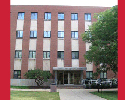 |
|
 |
 |
 |
|
 |
 |
 |
 |
 |
 |
 |
| Dr Roy's TV Interviews | Dr Roy giving Lectures | Print Media Presence | Testimonials | Awards & Achievements |
|
For consultation & treatment (by appointment / or online) click How to Consult Us (Last Updated on: ) |
|
High Insulin Insulin, a potent hormone released by the
pancreas, keeps blood sugar levels in a healthy range. People with type 1
diabetes do not make enough insulin to maintain normal blood sugar levels.
In type 2 diabetes, however, insulin levels can actually spike in an
effort to overcome the body's resistance to its effects. Other causes of
high insulin levels include pregnancy and insulin-secreting tumors.
2. insulin-secreting tumor, called an insulinoma,
can cause high insulin levels. Insulinomas are typically small tumors that
are usually found in the pancreas. Women over the age of 50 are most
commonly affected. The majority of insulinomas are not cancerous, report
authors of a November 2008 review article in "Cases Journal." Even so, an
insulinoma can cause dangerously low blood sugar levels due to surges in
insulin produced by the tumor. Symptoms of low blood sugar include
tremors, sweating, dizziness and confusion. |
|
|| Home
|| Diabetes
|| Thyroid
|| Short
Height || Obesity
|| Male
Hormone Disorder || |
|
We get patients from all major cities in India & Abroad . In the following cities all the facilities for investigation & treatments including medicines are available as Delhi (North, South, East, Central, West, New Delhi). Breast Reduction Techniques Delhi Liposuction Treatment Pills Doctor Doctors India Cure New Treatments Latest India Inhalation Herbal Ayrvedic Yoga Centre Hospital Institute Treatment Delhi New Noida best qualified Indian East West North South Central Gurgaon Gurugram Faridabad Ghaziabad To Different Communities like Hindustani, Hindustan, Hindu, Christian, Muslim, Sikh, Parsee. The other cities are NCR, National Capital Reagion in India, Indian, Hindustan, Ghaziabad, Faridabad, Noida, Gurgaon Gurugram, Meerut, Bombay, Chandigarh, Calcutta, Simla, Jammu, Srinagar, Aligarh, Lucknow, Kanpur, Allahabad, Varanasi, Dehradun, Madras, Kolkatta, Nainital, Agra, Jaipur, Bikaner, Jodhpur, Porbandar, Dwarka, Ahmedabad, Gandhi Nagar, Vadodara, Surat, Mumbai, Pune, Thane, Panaji, Nasik, Nagpur, Indore, Ujjain, Bhopal, Gwalior, Jabalpur, Raipur, Hyderabad, Goa, Visakhapatnam, Bangalore, Banglore, Bangalooru, Mysore, Mangalore, Manipal, Chennai, Pondicherry, Madurai, Kanchipuram, Coimbatore, Kanyakumari, Ernakulam, Trivandrum, Darjeeling, Gangtok, Bhubaneswar, Puri, Guwahati, Shillong, Imphal, Kohima, Agartala, Patna, Ranchi. |
Copyright © 2001 All Right Reserved www.DiabetesThyroidHormone.com